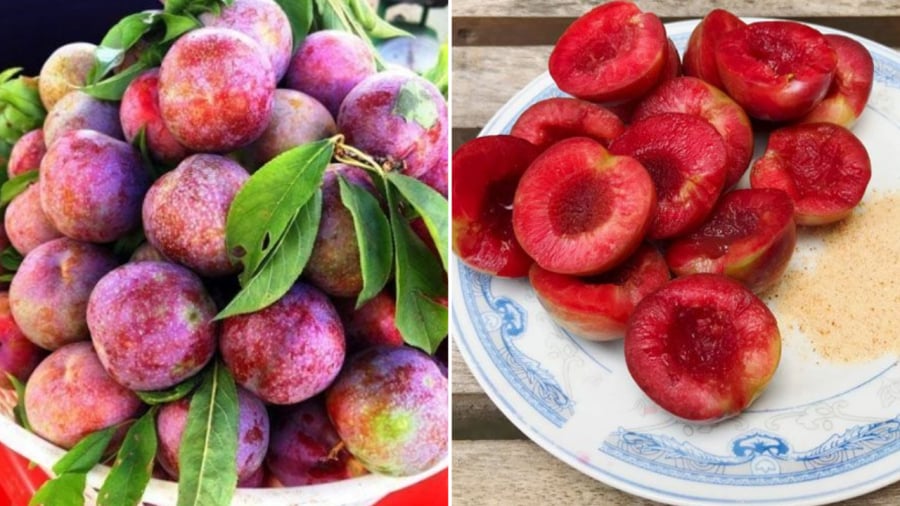Summer is the season for ripe, juicy plums. These tart and crunchy fruits are a delight to many. While plums offer nutritional benefits, they should be consumed in moderation to avoid any adverse effects on your health.
Avoid Overeating Plums
The plums referred to here are Northern plums, distinct from the plums (plum-shaped fruits) commonly known as “roi” in the Southern regions. Plum season typically spans from April to August annually, with various cultivars available such as rice plums, late plums, steel plums, triple-flowered plums, and Tavan plums. Generally, all types of plums are nutritionally dense and fairly similar. They are excellent sources of dietary fiber, vitamins A and C, and antioxidants. These nutrients aid in digestion, slow down the aging process, and boost the immune system.
Despite their nutritional value, it’s important not to overeat plums. Consuming too many plums can lead to internal heat, mouth ulcers, and acne breakouts. Individuals with a hot body constitution are particularly susceptible to these issues.
Additionally, excessive plum intake may impact your stomach, causing acid reflux and gut irritation, especially when consumed on an empty stomach.

Excessive Plum Consumption May Increase the Risk of Kidney Stones
Plums are high in oxalates, which can combine with calcium to form precipitates, reducing calcium absorption in the intestines. Over time, this can lead to calcium deposits in the kidneys and urinary tract, resulting in the formation of kidney stones.
Individuals with a history of kidney stones or those at high risk for developing them should refrain from consuming large quantities of plums to prevent aggravating their condition.
How Many Plums Should You Eat Daily?
Plums are delicious and packed with nutrients, but it’s important to exercise moderation. According to VTC News, to avoid overburdening your digestive and renal systems while still reaping the benefits of plums, traditional medicine practitioner Bui Dac Sang recommends limiting your intake to 5-7 plums per day.
Additionally, individuals with pre-existing stomach, liver, or kidney conditions should consume plums sparingly.
Pregnant women can eat plums but should do so in moderation to prevent internal heat, mouth ulcers, and acne breakouts.
It’s also advisable to avoid pairing plums with excessive salt and spicy chili peppers. While this combination may enhance the flavor, it can irritate the stomach and increase the risk of digestive issues. High salt intake is also detrimental to blood pressure and cardiovascular health.
Selecting Ripe Plums and Proper Cleaning
When purchasing plums, opt for those with a round, uniform shape and intact skin free from scratches, bruises, or insect damage. A white powdery substance on the surface is natural and indicates the plum’s self-preservation mechanism. Plums with a glossy skin coated in a thin layer of powder are fresh and recently harvested.
If you prefer crisp, sweet-tart plums, choose ones with a color transitioning from green to red. For softer, fully ripe plums, select those that are entirely red but still slightly firm to avoid overripe or bruised fruits.
Refrain from buying plums that are squashed, scratched, or show signs of insect infestation or human tampering, such as fingermarks.
Always wash plums thoroughly before consumption. Soak them in a dilute salt solution for about 30 minutes to eliminate surface contaminants. Rinsing plums under running water helps dislodge dirt and bacteria.






























